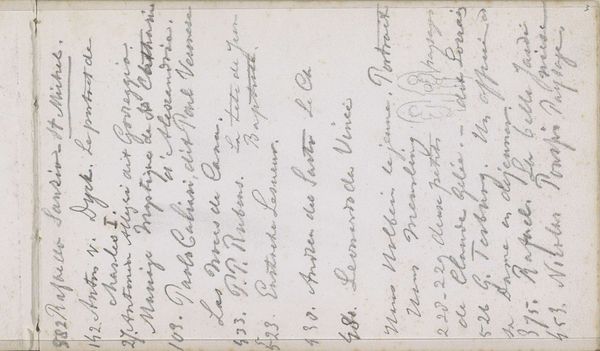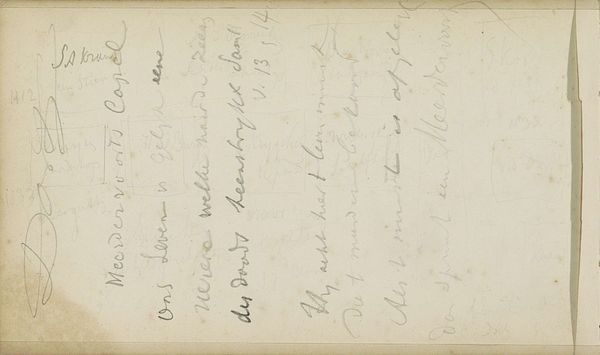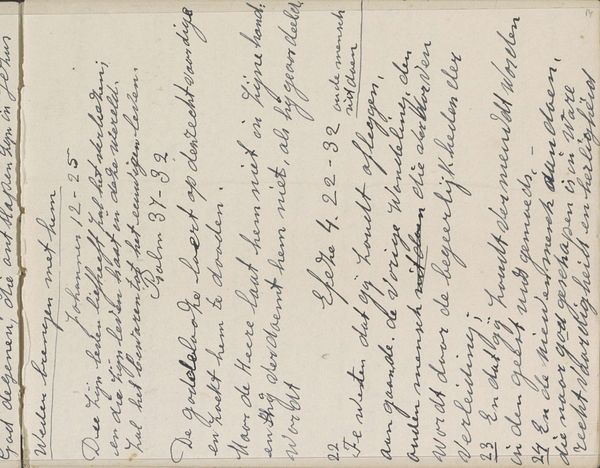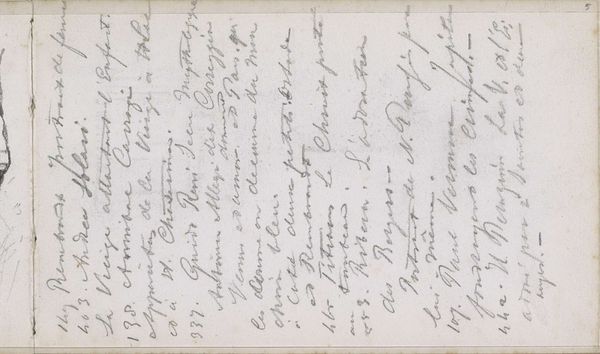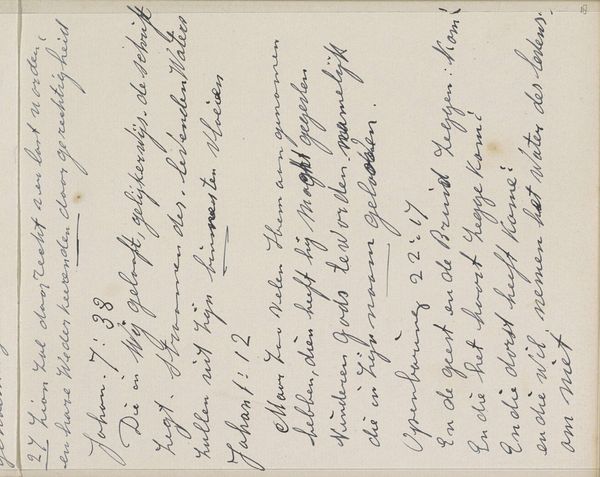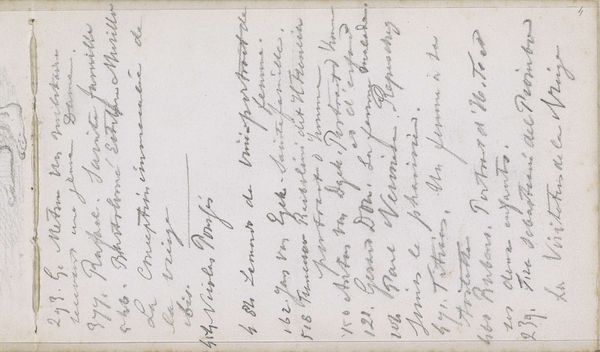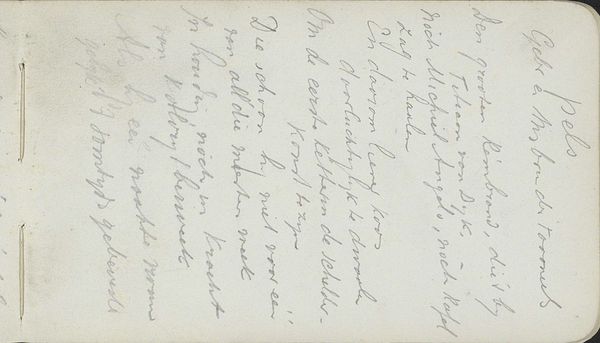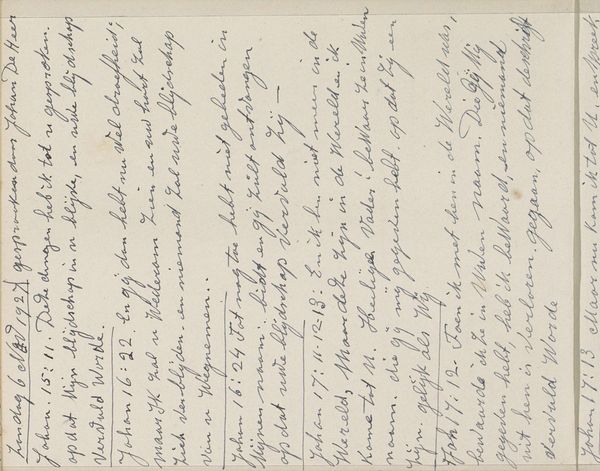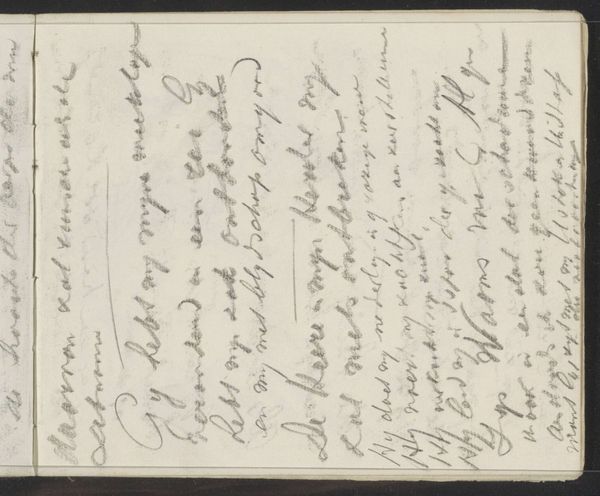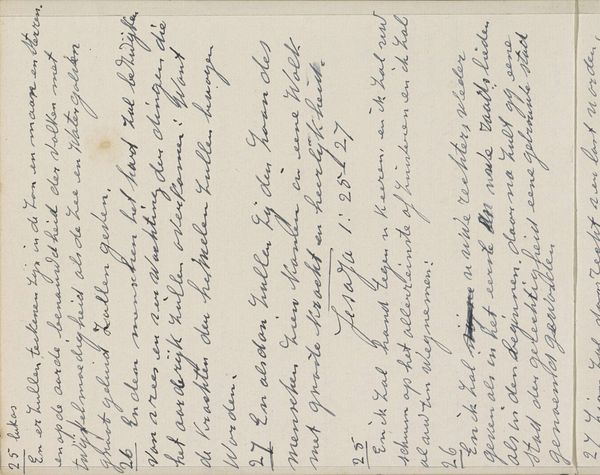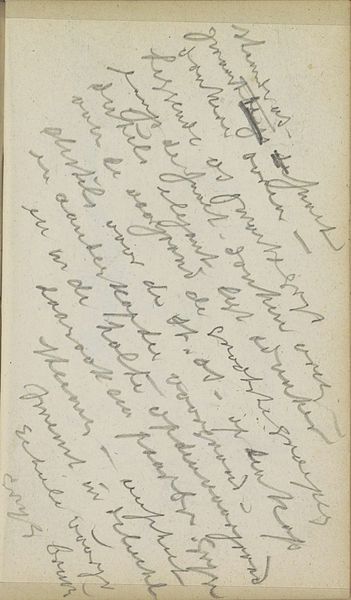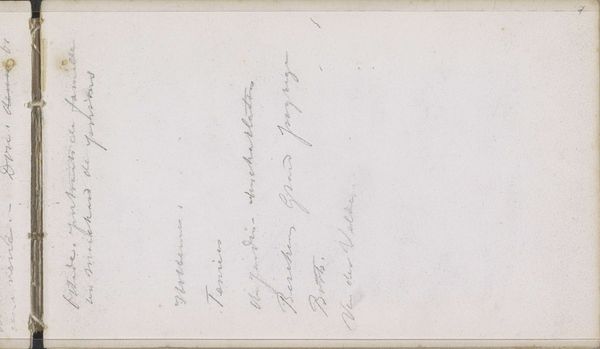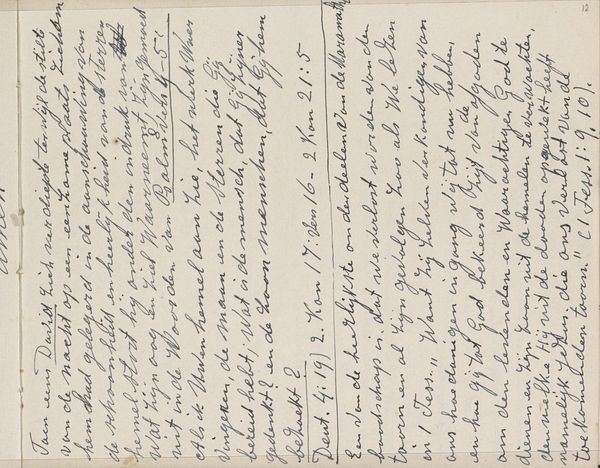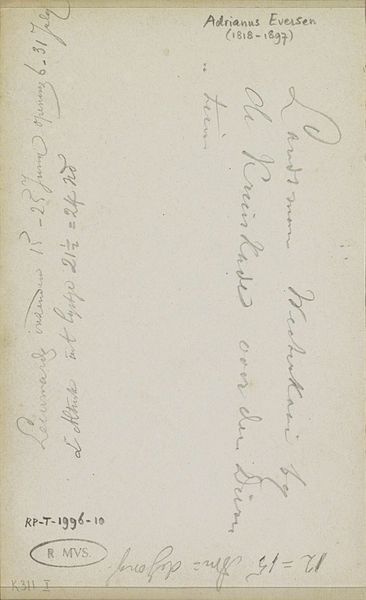
Fragment uit Andries Pels’ ‘Gebruik en misbruik des Toneels’ uit 1681 1905 - 1906
0:00
0:00
careladolphlioncachet
Rijksmuseum
drawing, paper, typography, ink, pencil
#
portrait
#
drawing
#
hand written
#
script typography
#
hand-lettering
#
hand drawn type
#
hand lettering
#
paper
#
personal sketchbook
#
typography
#
ink
#
hand-written
#
hand-drawn typeface
#
fading type
#
pencil
#
abstraction
#
modernism
#
small lettering
Copyright: Rijks Museum: Open Domain
Curator: Up next we have a rather intimate piece: "Fragment uit Andries Pels’ ‘Gebruik en misbruik des Toneels’ uit 1681" by Carel Adolph Lion Cachet, created around 1905-1906. It's currently held here at the Rijksmuseum. It seems to be primarily ink and pencil on paper, a study perhaps. Editor: Wow, there's an appealing softness to this. A fleeting quality to these faded words. It has a touch of something ancient about it, like finding an old manuscript hidden away. Curator: It's part of a personal sketchbook and depicts typography, hand-lettered, clearly reminiscent of personal notations, capturing the mood of its time. The text is, as the title suggests, an excerpt from a play by Andries Pels. Do you feel that adds a dimension? Editor: Absolutely. It almost invites us to decipher a secret language. This piece feels extremely modern to me in its abstraction. It is fascinating how someone took older classical source material and tried to do something very experimental and cutting edge with it. What does it say about theatre criticism in a time of rapidly changing modern sensibilities? Curator: Pels' work itself was highly critical of the baroque tendencies in theater during his time, favoring classical simplicity and rules. Lion Cachet then seems to engage with these historical reflections during an explosion of new and often chaotic art and social developments. Editor: Right. It's a fascinating layering. Both are acting as commentators! We view it like we would archaeology; there are eras contained in just one drawing. In some strange way it looks like a digital mock-up for modern designers; as if somebody was exploring various fonts to evoke a period, yet at the same time it retains that softness in texture as well as content Curator: Yes, exactly! By Lion Cachet’s focus on text, it creates a visual echo chamber through hand written material. We're not just looking at text, but we are feeling its passage through culture. Editor: I can see that. There's something ghostly about it, a phantom of forgotten debates, preserved on the page. Curator: That is exactly what stands out about the work here at the Rijks. We are lucky to present to our visitors, something quite haunting. Editor: I will agree, it stays with you. A piece to unravel.
Comments
No comments
Be the first to comment and join the conversation on the ultimate creative platform.
